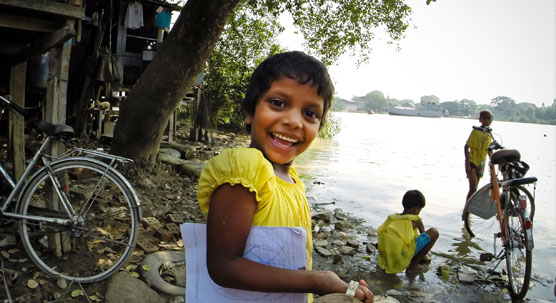Press release 2016-05-25 at 14:14
Myanmar is undergoing industrialisation and urbanisation at a rapid pace. According to an assessment conducted by the Finnish Environment Institute, it is important to develop basic functions of Myanmar’s environmental administration, such as information systems for compiling data about the state of the environment and actions creating pressure on the environment. SYKE carried out the assessment on Myanmar’s environmental administration development needs in collaboration with the United Nations Development Programme (UNDP) and local experts. The work was funded by the Ministry for Foreign Affairs of Finland.

© Mangshang Yaw Bawm
Myanmar is opening up following decades of military rule and free elections were finally held at the end of last year. The developments are attracting foreign companies as Myanmar has significant natural resources: forests, oil, gas and minerals. However, there is still much room for improvement in the country’s environmental licensing practices and environmental administration.
“Currently there is a great need to get the basics of Myanmar’s environmental administration in order. If this is not done, risks for Myanmar’s environment and people depending on it are great”, states researcher Kirsi Mäkinen from the Finnish Environmental Institute.
The general framework of Myanmar’s environmental legislation is in place, but at the operational level guidance and practices have only partly been developed. For example, Environmental Impact Assessment (EIA) regulations are in place, but their implementation is at an early stage. The process is at a deadlock as there are insufficient staff to process the applications, and the officials lack expertise to review some of the applications.
“International companies have carried out EIAs in order to attain environmental permits, but in practice the stack of applications is just growing on officials’ desks”, explains Kirsi Mäkinen.
“On one hand Myanmar has good expertise in forestry, which is an area that traditionally has been invested in since the days of the British Empire. On the other hand, expertise in areas such as environmental impacts of the energy sector is not yet sufficient”, states Mäkinen.
Myanmar is in urgent need of an environmental monitoring system. The first step is to get a functional system in place, which can be used to store existing environmental data, and data gathered from various reports. Polluting industrial activities should also be entered into the information system so that they can be monitored easily. Addressing environmental matters also requires more openness. “The environmental administration and procedures should be developed to make them more transparent. Processes are required by which citizens can influence decision making”, states Mäkinen.
Increasing the capacity and resources of Myanmar’s environmental administration requires money. “The ‘polluter pays’ principle must be implemented as soon as possible. This would cover the costs of permit processing and environmental monitoring”, Kirsi Mäkinen concludes.
The locals are very eager to be involved in developing their environmental administration and protecting Myanmar’s environment, which is something Mäkinen regards as a positive aspect.
The future of Myanmar’s environment will be the topic of a talk at Helsinki’s World Village Festival on 29 May, at 3.30pm at the Railway Square (in Finnish)
More information:
Researcher Kirsi Mäkinen tel. +358 295 251 445, firstname.lastname@ymparisto.fi [kirsi makinen]